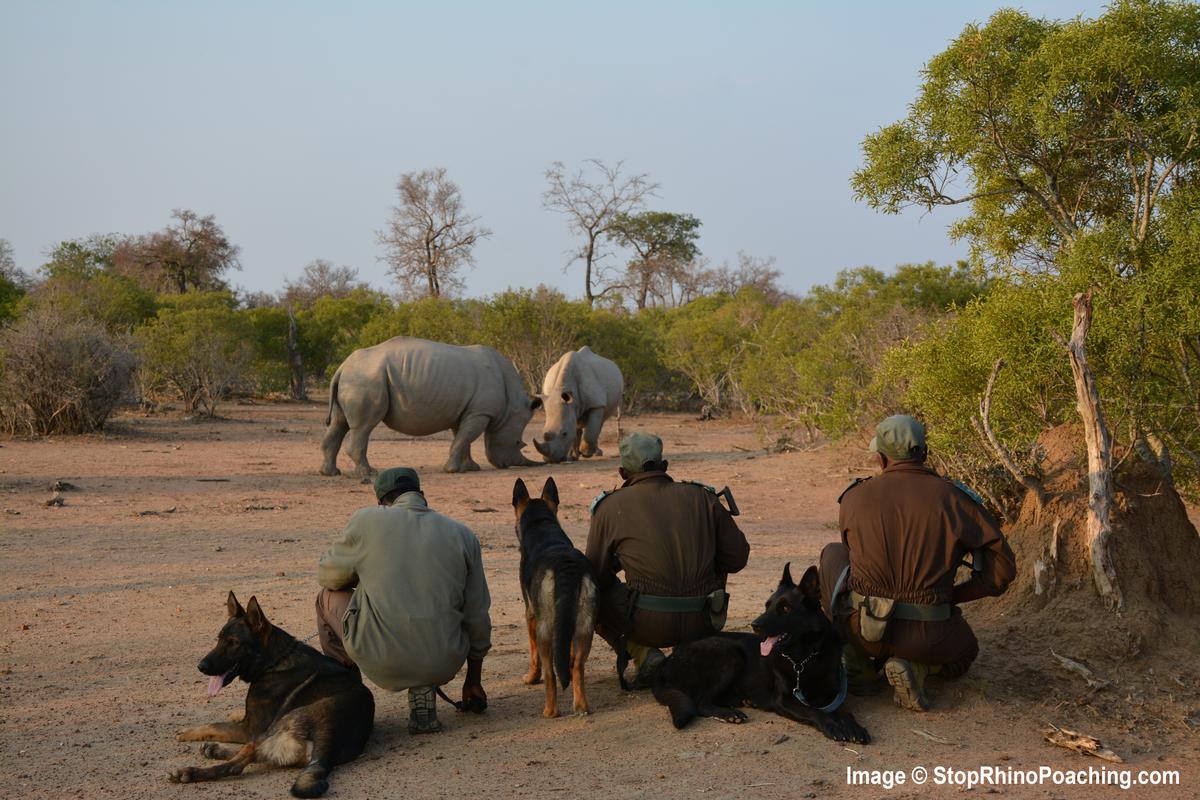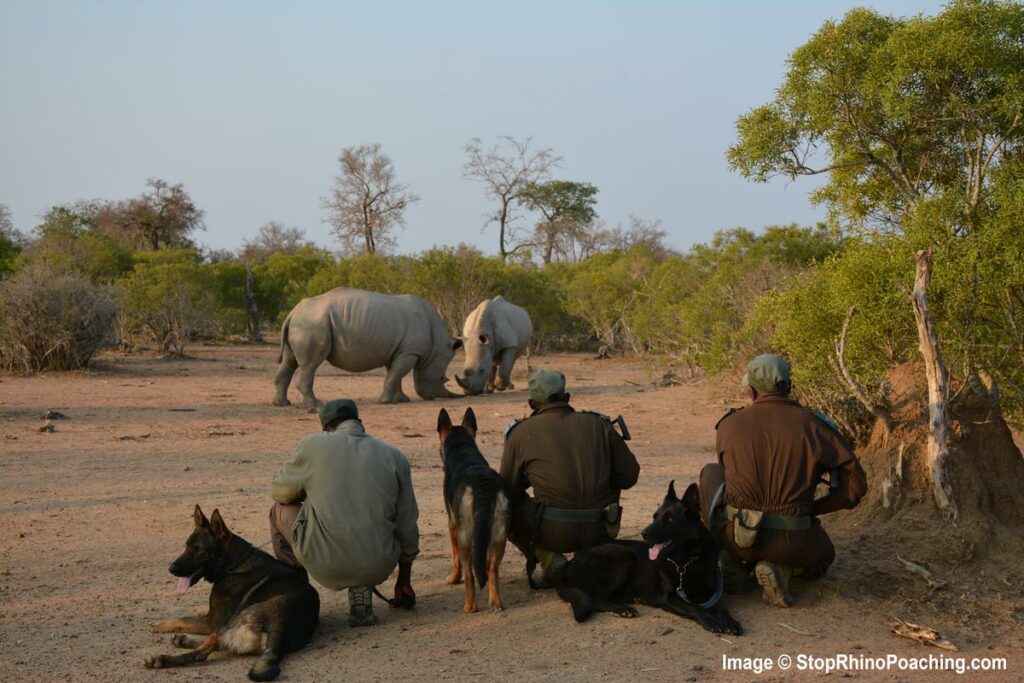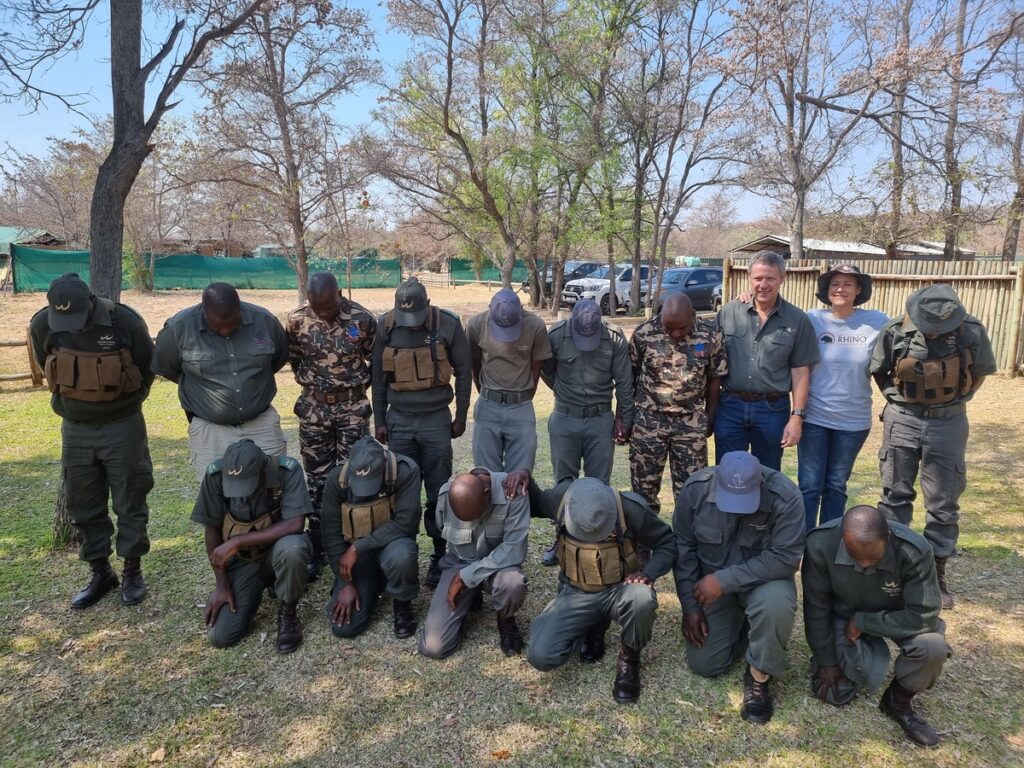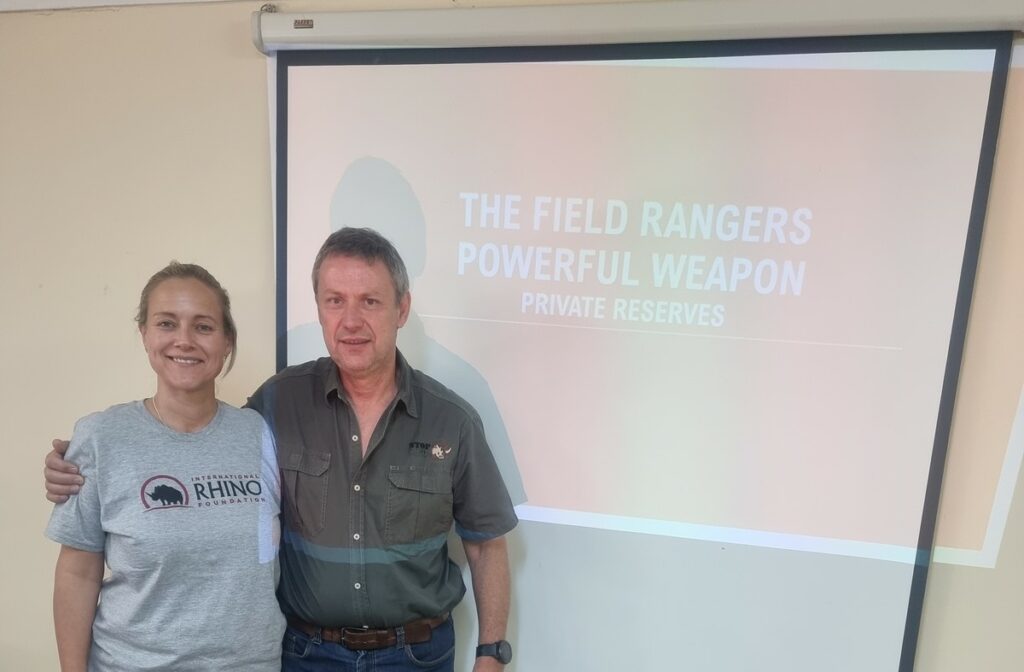Legal Support for Rangers | A thank you going full circle.


By Elise Serfontein, South Africa Advisor to IRF and Founding Director of StopRhinoPoaching.com
Being hands on with the implementation side of donor-funded rhino projects isn’t all lodge visits, game drives and sundowners. When you spend enough time being exposed to the nitty gritty of what those on the ground are going through to keep rhinos alive, the raw beauty of our South African bushveld is quickly overshadowed by the reality of what we – and especially the rangers and managers – are truly up against. Adding to the brutal layers of criminality associated with poaching, a deeply complex and dynamic environment (the rhino space really tests your resilience) and the responsibility we have to make the best and most informed decisions on who and how to support within time frames and deliverables, implementing projects also carries with it the all important aspect of conveying the appreciation of those on the ground to those who actually enable the work to happen in the first place.
Those of us “on the ground” feel a lot of gratitude to our supporters. And far too often, in a haze of projects, we don’t convey this enough. How do you describe the rough hands of a ranger engulfing yours, in a sincere gesture of appreciation for investing in growing his knowledge? How do you share the feeling of collective energy in a room where a training session has paved the way for honest dialogue with someone who truly understands the personal mortal risk to rangers? So often, especially in that moment, you know you are on the right track, with a deep sense of connection and belonging and that our collective efforts really DO matter.
In November 2022, StopRhinoPoaching.com, along with other leading NGOs in South Africa, was invited to give a presentation at our Department of Forestry, Fisheries and the Environment’s annual Environmental Compliance and Enforcement Lekgotla. In South African English, a lekgotla is a meeting called by government to discuss strategy planning. The term is borrowed from Setswana, and means court. This alone was pretty fitting as, in the allocated time to present our top projects, I had chosen to highlight the importance of Basic Legal Training for Rangers and their Managers, and involvement in partnership with lawyer Coert Jordaan as generously funded by the IRF since October 2020.

Coert’s involvement in the Kruger National Park, where he is affectionately known as “the Ranger’s Lawyer,” spans back many years. I have seen firsthand the close relationship he has with the rangers, their appreciation for his dedicated understanding of their current working conditions and challenges, and beyond that, a fondness and brotherhood built over a decade of trust. Coert has been with them and supported them through the hardest and most scary times in their lives. He has developed and provides essential trainings to equip rangers and their managers with a solid foundation of basic legal knowledge relevant to their anti-poaching activities. This knowledge has also saved rangers’ lives.
Recognizing projects with great impact and expanding these through strong partnerships, SRP approached Coert with the intention of rolling his training out to the various reserves and security clusters that SRP and IRF support nationally. This work was critical to us for a number of obvious reasons – in that by “upskilling rangers” and managers we aimed to contribute to “technicality free” arrests and a more positive outcome in court. Even more so though, Coert’s training gives rangers the confidence to carry on with their duties because they learn their rights and stay within the legal framework of the law when involved in follow-ups with armed and aggressive suspects. They appreciate the legal way of doing their work, especially when there is such a strong focus on human rights and the importance of social safeguards. Bearing in mind that rangers need to adhere to very strict rules of engagement, and the poachers absolutely none. Discussions with someone of Coert’s calibre and experience on making these often split second decisions (the difference between life and death) and the legal consequences of that decision has been an important talking point in every single training session that we’ve given so far. It is here, openly, that fears are raised (and eased,) real life encounters are shared and the stark nitty gritty of keeping rhinos alive really comes to the fore.
Now going into our third year of IRF’s funding support to this project, nearly 1,100 rangers and 235 managers across 64 reserves in 6 provinces in South Africa have received training. That’s quite an achievement!



A hand went up in the middle of the room after my presentation at the lekgotla. Rather than a question, came a comment that was so unexpected and so moving and passionate that I sat there with tears in my eyes. The speaker wanted to say thank you to SRP and the people who had made this training possible, as his reserve had had the privilege of receiving the legal training with Mr. Jordaan. He went on to say that within his team, their confidence in doing their duties as well as their morale was greatly improved, as were their arrest procedures and statement writing. Dressed in civilian clothes, he reached into his pocket and took out the laminated training card that we issue after each training course. “This,” he said “this summarizes everything that you need to know. This is the most important training you can ever get.”
Before I could respond, another had went up and there stood an investigator I recognized from one of the provinces. A man of very few words, he too wanted to publicly echo what this training had meant to their ranger teams and convey their thanks.
This day will always serve as motivation to me. I couldn’t wait to call Coert with these messages. Appreciation long after the fact, and recognition of efforts and impact when least expected is the most rewarding thank you of all.
Behind every project is a team of people who worked hard to get to that point. And behind that team is someone who believed in them (and the cause) enough to support them financially.
We are grateful beyond words to the International Rhino Foundation, staff, partners and donors for so many years of support towards rhino projects in South Africa. This support touches more lives than we will ever know.

